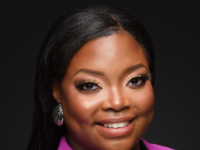 A new study conducted by scholars at Michigan State University finds that zero-tolerance discipline policies in the nation’s schools unfairly punish Black girls. These policies call for a student’s removal from school for any infraction relating to policies ranging from dress code violations to truancy to fighting.
A new study conducted by scholars at Michigan State University finds that zero-tolerance discipline policies in the nation’s schools unfairly punish Black girls. These policies call for a student’s removal from school for any infraction relating to policies ranging from dress code violations to truancy to fighting.
The authors point out that Black girls have a higher rate of suspensions than girls from any other racial or ethnic group and have a higher rate of suspension than for boys, except for African Americans and American Indians.
 Dorinda Carter Andrews, an associate professor of teacher education at Michigan State University and a co-author of the study, notes that “the research shows that teachers and other adults may give a pass to certain students for the ways in which they talk back. Teachers may view some girls, particularly African-American girls, as attitudinal or aggressive, even though they may be using the same talk-back language as a White female student.”
Dorinda Carter Andrews, an associate professor of teacher education at Michigan State University and a co-author of the study, notes that “the research shows that teachers and other adults may give a pass to certain students for the ways in which they talk back. Teachers may view some girls, particularly African-American girls, as attitudinal or aggressive, even though they may be using the same talk-back language as a White female student.”
Dr. Carter Andrews adds that “zero tolerance constructs these young girls as criminals. It’s a criminalization of their childhood, and it’s a very prison-type mentality for schools to take.”
A graduate of the Georgia Institute of Technology, Dr. Carter Andrews holds a master’s degree in elementary education from Vanderbilt University and a second master’s degree and an educational doctorate from the Harvard Graduate School of Education.
The paper, “The Effects of Zero Tolerance Policies on Black Girls: Using Critical Race Feminism and Figured Worlds to Examine School Discipline,” was published on the website of the journal Urban Education. It may be accessed here.
Co-author of the study is Dorothy Hines-Datiri, an assistant professor in the School of Education at the University of Kansas, who earned a Ph.D. in educational policy at Michigan State University in 2014.











The universal negative portrayal of black women as seen through the media via shows like Love and Hip-Hop, and Housewives of Atlanta and in addition on the internet, such as WorldStar Hip-Hop certainly doesn’t help, and may have seeped into the consciousness of educators.
Just my take.